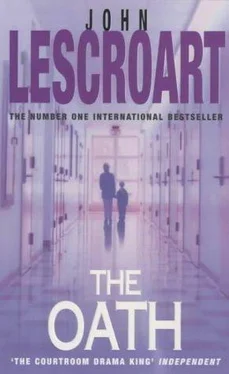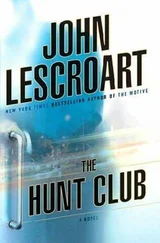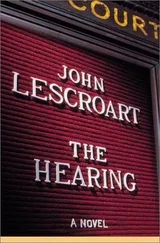A note of panic sounded in Kensing's voice. "He's not going to print this, is he? How did he find it out anyway? Everything about it has been confidential." But Hardy didn't have time to form a reply before Kensing said, "Shit. Driscoll."
"He's upset and taking it out on the world. The point is that the hospital's under siege as it is. If it now comes out that they're making secret deals to hide problems with their doctors…there's no question that it's news, Eric."
"Driscoll's trying to take the whole place down with him, isn't he?" A sigh. "And the small shall inherit the earth."
"Let's hope not. Anyway, I made Jeff a deal to keep you out of the limelight a few more days, maybe forever. But I've told him he can't use what I gave him-which means you're still on the burner-until I tell him he can. And that's going to depend on you."
"Okay, whatever it is, I'm in."
"All right." Hardy realized that he'd been gripping the telephone tightly. He relaxed his grip, forced an even tone. "You remember the night Markham died, you went to his house."
"Sure. I never said I didn't."
"I want you to think about what you did when you left. What time was that, by the way?"
"A little before ten, I think. That inspector, Bracco, he saw me drive away. He might have a record of it."
"He might," Hardy conceded. "But he didn't stay around and it's conceivable that you might have come back."
"Well, I didn't. Why would I do that?" He hesitated. "What's this about?"
"It's about Carla's murder. I want to know what you did after you left there."
"What I've always said I did. I drove home and went to sleep."
"I know you've said that, but that doesn't help me. I want you to try and remember if you met somebody in your building, or talked to anybody in the street, or used any of your phones or computer. Anything that could place you away from Markham's house between ten and eleven or, even better, ten and twelve."
Another pause. "I used my cell phone to call the clinic and see if I had messages."
This was good, Hardy thought. There would be a record of the call. They would even be able to pinpoint its point of origin within a several-block radius. "Great. When was that?"
"Right after I left. I don't think I'd gone two blocks."
Wrong answer. Kensing could have made the call, driven around the block, and been back in plenty of time. "Think of something else," Hardy pleaded.
"Why? What's this about?"
He wanted to scream at him to just answer the question-could he give himself an alibi? Instead, he answered, "It's about me talking to a witness who heard the shots, Eric, and placed their time at about a quarter to eleven."
"Which fixes the time of death."
"Yep. Quarter to eleven, she's dead and the lights are on. Two o'clock, they're all off. I figure that whoever killed her waited around a while, then turned off the lights and snuck away."
"Why would anybody wait, though?"
"I don't know. Maybe spent the time looking for something. Maybe covering up. Maybe thought they'd be seen leaving the place after the shots. Your guess is as good as mine, but now we've got a murder and a time, which means you're clear if you can think of anything that-"
"No!" Suddenly, Kensing blurted it out. "Just no, okay? Jesus, I didn't kill anybody, Diz. I'm a doctor. I save lives, for Christ's sake. I just didn't do this. Can we leave it?"
Hardy's exasperation boiled over. "Sure we can, Eric. But nobody else on the planet is going to. So you just take your own sweet time and if you remember exactly what you did that night, why don't you call me back? If it isn't too goddamned much trouble."
Hardy slammed down the phone.
Brendan Driscoll couldn't believe the emptiness.
He'd gotten up at his regular time, a little bit after 7:00, and made breakfast for himself and Roger. After Roger had gone to the bank, he'd spent a couple more hours with the Parnassus files. But even now they were beginning to lose some of their fascination for him. After all, Jeff Elliot wasn't going to use everything, at least not just yet. Worse, this new situation over at Portola, with the lady they'd found murdered, was going to seem more important to Jeff than any inside information about the business side.
So he'd turned off the computer.
Then, fighting a nagging sense of ennui, he decided to work out at his gym for a couple of hours. When he came home from that, he showered and made a really lovely, well-presented mesclun salad with beets and feta cheese for lunch, which he ate alone on his sunny back patio area. But it didn't cheer him up. Depressed, he called Roger at work, but he was busy with clients and thought he might even be late getting home, which made Brendan edgy. You just never knew, really, and now he didn't have a job…
Well, he was just feeling insecure, and who could blame him? He certainly would never have thought Tim would have considered letting him go, either. People changed. You had to be on your guard, flexible, ready for anything.
The afternoon yawned before him, endless. He put on some music, walked to the back of the house, threw in a load of laundry, washed his lunch dishes. Finally, deciding that it was the house, he was just going stir-crazy, he got dressed, went down to the garage, put the top down on his Miata, and pulled out into the day.
Now he'd been driving for two hours. He'd crossed the Golden Gate Bridge and driven up as far as Novato, then turned and come back, stopping for twenty minutes in Corte Madera for a cappuccino. He spoke to no one and no one seemed to notice him, even in his red convertible. He was alone, alone, alone, crossing the bridge again, the ocean blue and white-flecked below him.
He found himself on Seacliff Drive, turning and pulling up in front of Tim's house. A realty company had already put a sign on the lawn. The sun was behind him, warm on his shoulders. When he could no longer bear sitting in his car, he got out and approached the house, which seemed to shimmer pink in the afternoon light.
On the stoop, he stood and, without really thinking about it, rang the doorbell, listening to the loud chiming. Finally he turned around and sat on the top step. He had no idea how many times he'd looked at his watch today, but now he checked it again.
The sun slipped another degree or two. He didn't move. A Mercedes drove by on the street. After another segment of time, another car passed, this one throwing newspapers onto some of the driveways, but not the Markhams'. A large crow landed on the walkway down by the sidewalk, hopped a few steps toward him, and cawed loudly.
It was already the longest day of his life, and still hours before the sun would set.
He started to cry.
***
Glitsky, Bracco, and Fisk met up at the hospital cafeteria and sat at one of the isolated tables, comparing notes.
"I talked a while to Mr. Bhutan," Glitsky said. He had a plain, dry bagel in front of him and a cup of hot water he was turning into tea. "He's an uptight guy and doesn't seem to have many friends, here or anywhere else. But he struck me as more sad than violent. The suffering of patients seems to bother him a lot for someone who works with it all the time."
"Are you saying you think he euthanized some of them?" This was Fisk, who'd reached this conclusion on his own a little earlier.
"Maybe. It's a little early, but he might be worth squeezing as time goes by."
But Fisk was attached to his theory. "He was the only nurse who worked all of Kensing's list, you realize that?"
"Yep. What I don't know, though, is how many of those people were homicides. And were there other homicides, not on Kensing's list, where Bhutan wasn't on duty?"
Some sign passed between the two inspectors; then Bracco admitted that he'd mentioned the same thing a while ago. He was drinking from a can of Diet Coke, and interested in finding more true homicides. "You have any luck with that, Lieutenant?" Bracco asked. "You said you had somebody else with suspicions."
Читать дальше












